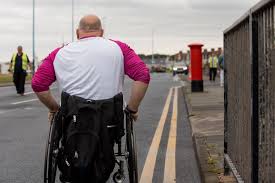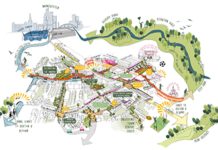Proposed changes to Personal Independence Payments (PIP) could have a “devastating” effect on some of the most deprived communities in northern England
A report out today by Health Equity North (HEN) released a seat-by-seat breakdown of the consequences of the Government’s proposal to alter PIP benefits, estimating that the worst-hit Parliamentary constituencies stand to lose more than £20 million a year from their local economies. The North East and North West are set to be affected the most, with all of the top ten most-impacted constituencies located in these regions.
With parliament due to vote on the proposal in the next few weeks, researchers have urged MPs to consider the impact on their constituencies before making their decision.
When the changes were announced by Chancellor Rachel Reeves in March, the Department of Work and Pensions (DWP) estimated that 400,000 fewer people would be eligible for PIP – and that 250,000 would be pushed into poverty as a result, including 50,000 children. This new analysis shows the cumulative economic impact of this for each constituency in England.
The report, by Health Equity North, is led by academics from Newcastle University, the University of Sheffield and the University of Manchester Found that the average loss per working-age adult in England is £176 per year
The changes are set to have the greatest effect on regions such as the North East (£269 per working-age person on average), the North West (£231), Yorkshire and The Humber (£206), the West Midlands (£191) and the East Midlands (£185)
The most-deprived constituencies will lose nearly three times the amount of the least-deprived (£265 per working-age person on average compared to £96) while the ten worst-hit constituencies are all Labour-held, and in “Red Wall” areas
Researchers also found that impacts will also disproportionately affect the constituencies which already have the lowest life expectancies in England.
Dr Luke Munford, Academic Co-Director of Health Equity North and Senior Lecturer in Health Economics, The University of Manchester, said: “The DWP’s own figures estimate that the proposed changes to PIP benefits could push an extra 250,000 people into poverty, including 50,000 more children. This is cause for concern on its own.
“Worse still, this research shows that the impact will be felt unequally, and that the larger burden will fall on the most deprived communities in the country. This will put further strain on people who are already finding it very hard to pay for basic living costs, and undoubtedly impact on their quality of life, mental health and life expectancy.
“While we acknowledge the Government’s desire to reduce costs and encourage people into work, we urge MPs to consider the potential impact of this proposal to thousands of people in their constituencies before casting their vote.”







